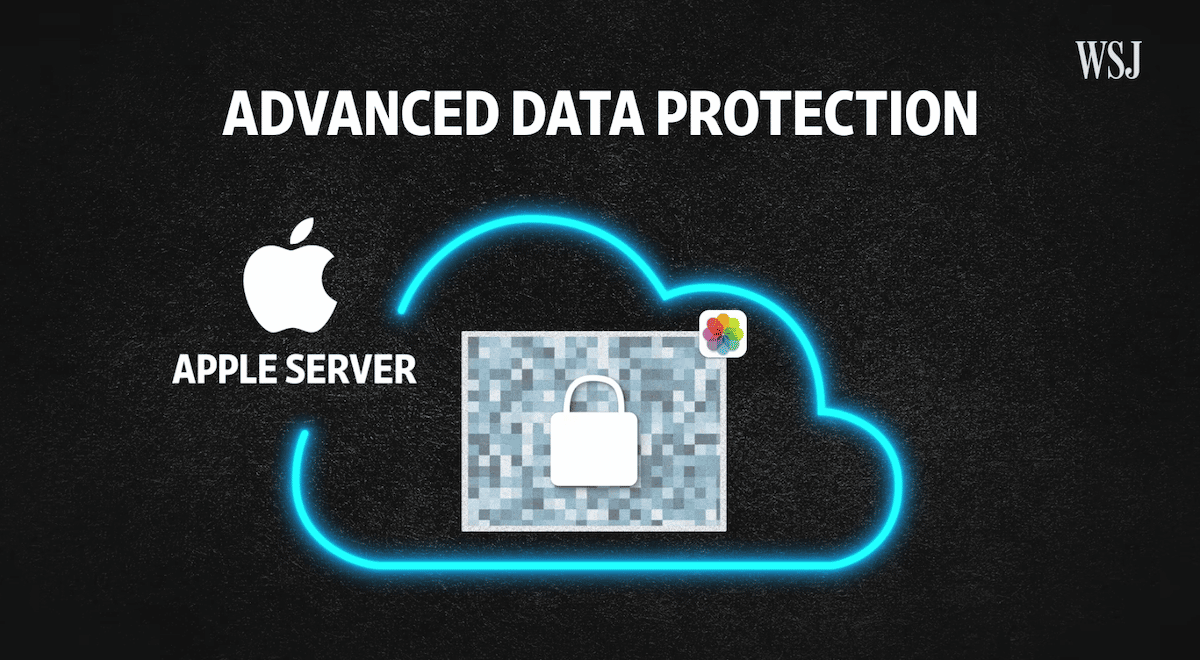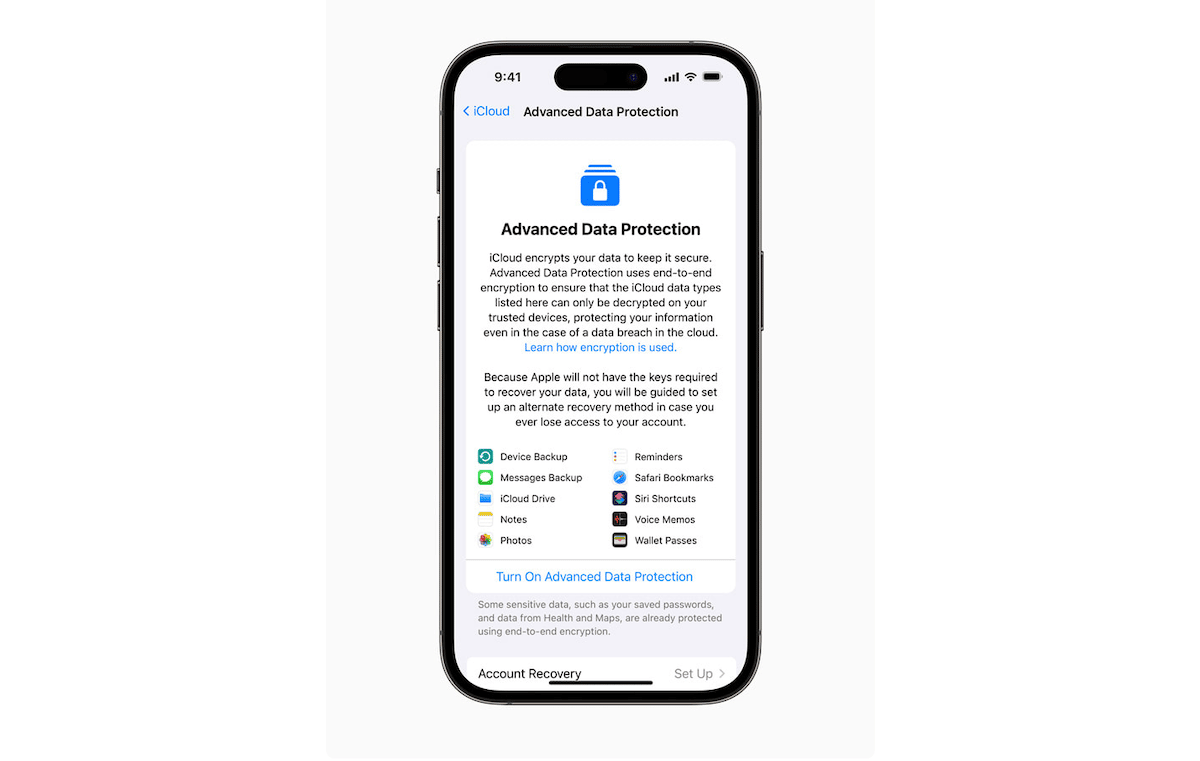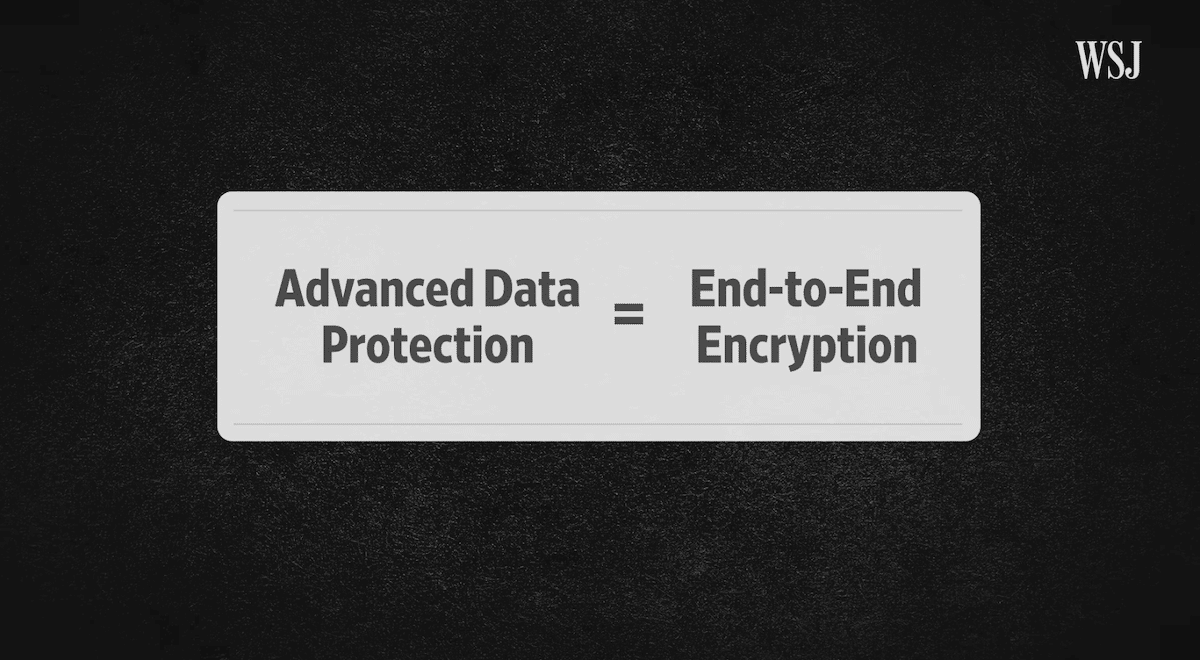Recently, Apple announced the “Advanced Data Protection for iCloud” as part of its new security features. Launching in the U.S. later this year and globally in early 2023, Advanced Data Protection extends end-to-end encryption on more data; bringing the total to 23 data categories.

One of the largest intelligence agencies in the world, the Federal Bureau of Investigation (FBI) has expressed deep concerns over threats the new iCloud end-to-end encryption poses on its work.
In 2016, the FBI and Apple got involved in a legal battle to unlock the iPhone of the San Bernardino shooter by creating a back door. Protecting the privacy and safety of all users, the tech company refused to comply with the intelligence agency. CEO, Tim Cook said that:
“the legal battle was a tough choice between security and privacy. FBI was demanding to create a tool to unlock the iPhone which raised many ethical questions and moreover, security experts weren’t sure if they will be able to contain the unlocking method in the future which inherently put the privacy of customers at stake. Therefore, Apple chose to stand up to protect the privacy of millions of its customers worldwide.”

Apple’s new iCloud end-to-end encryption poses threats
After the announcement of the new “Advanced Data Protection for iCloud”, the FBI shared its views on the new changes with The Washington Post via a statement. The bureau said that end-to-end encryption and its expansion on iCloud make their work harder and requested “lawful access by design”.
“This hinders our ability to protect the American people from criminal acts ranging from cyber-attacks and violence against children to drug trafficking, organized crime, and terrorism. In this age of cybersecurity and demands for ‘security by design,’ the FBI and law enforcement partners need ‘lawful access by design.”

Speaking to The New York Times, former FBI official Sasha O’Connell said that it was great for companies to prioritize security but it should not be done at the expense of denying law enforcement agencies access to digital evidence. On the other hand, privacy and security experts have applauded the company’s new iCloud encryption.
As the new iCloud encryption would block law enforcement agencies and governments from getting access to users’ data to investigate crimes even with a court order, The Wall Street Journal’s Joanna Stern asked Apple software chief Craig Federighi if that weighed in the rollout of the feature.
He said that “we view that, we really have the same mission at heart which is to keep people safe, ultimately keeping customers’ data safe has big implications on our safety more broadly.” Federighi also denied knowing anything about the rumor that the company dropped the plan to encrypt users’ iCloud data at the behest of the FBI.